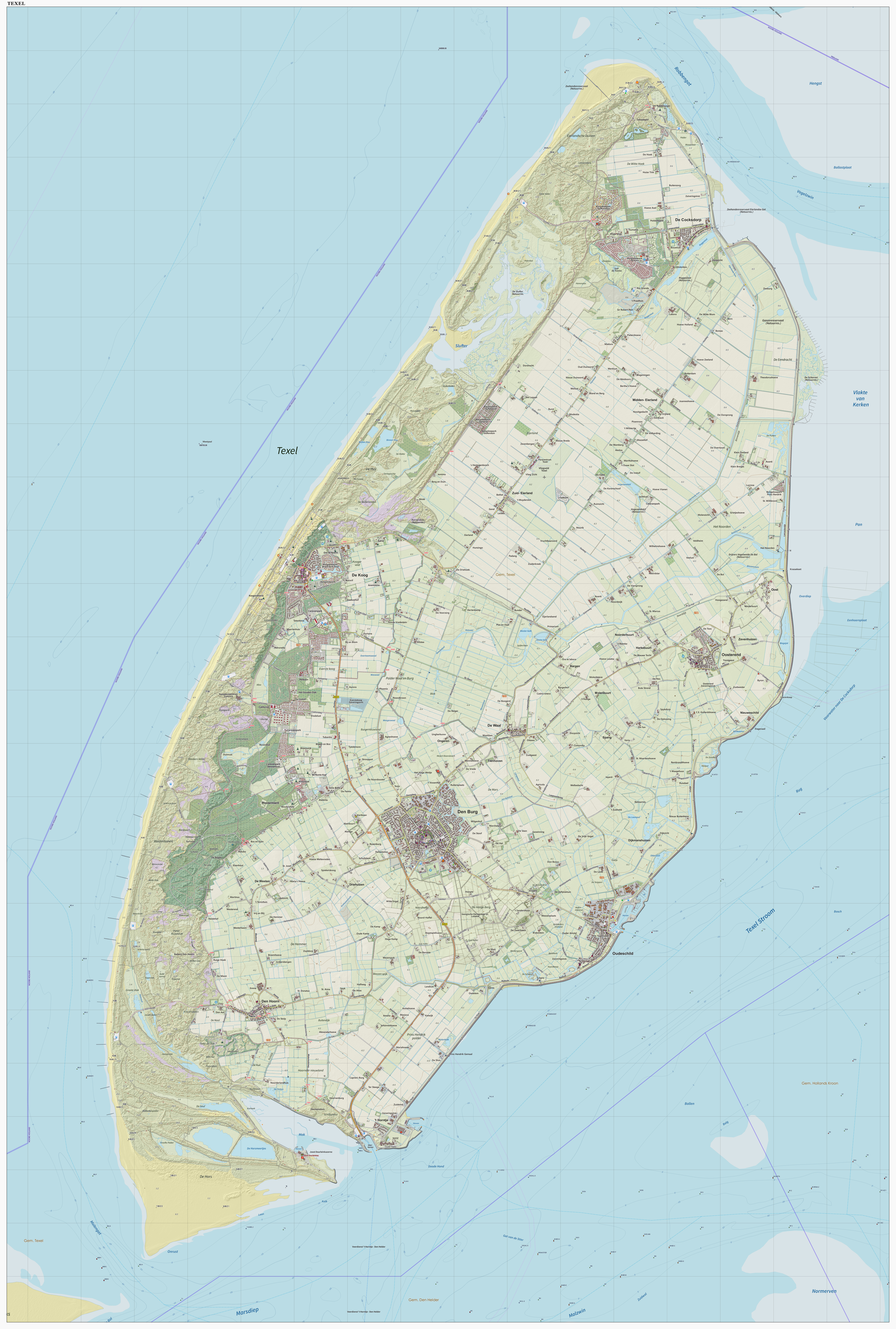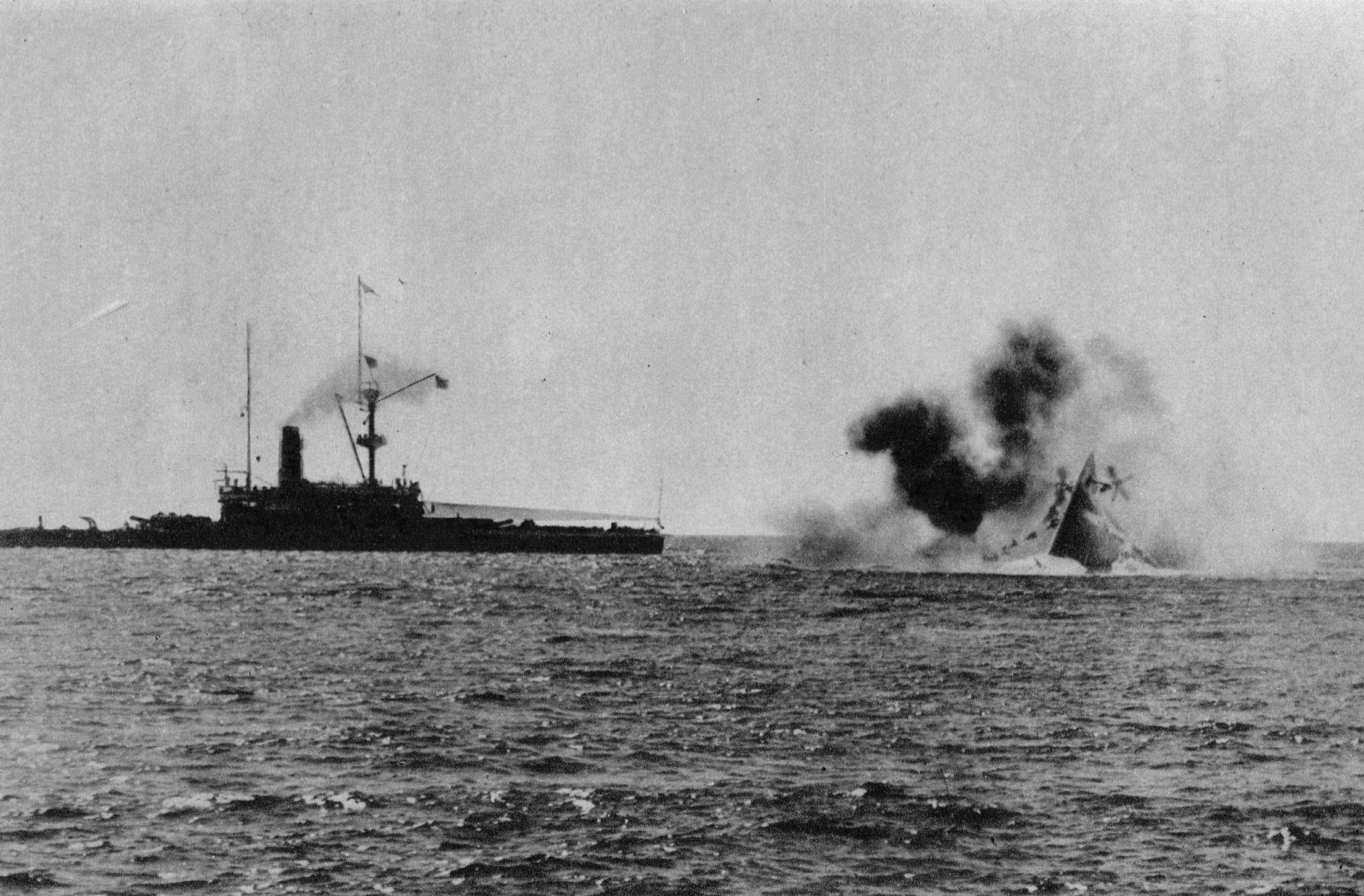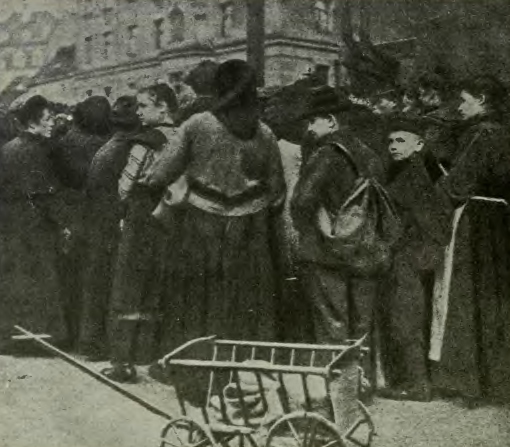|
Battle Of Dogger Bank (1916)
The Battle of Dogger Bank on 10 February 1916 was a naval engagement between the ''Kaiserliche Marine'' of the German Empire and the Royal Navy of the United Kingdom, during the First World War. Three German torpedo boat flotillas sortied into the North Sea and encountered the British 10th Sloop Flotilla near Dogger Bank. The German vessels eventually engaged the British vessels, after mistaking them for cruisers instead of minesweeping sloops. Knowing they were out-gunned, the British attempted to flee and in the chase, the sloop was sunk, before the British squadron escaped. As the cruisers of the Harwich Force returned to port, the light cruiser struck a mine, ran aground and broke in two. Although the Germans were victorious, they inflated the victory by reporting that they had sunk two cruisers. Background Under the command of Admiral Hugo von Pohl German naval strategy had been to conserve the High Seas Fleet against the larger Royal Navy while waging war against British ... [...More Info...] [...Related Items...] OR: [Wikipedia] [Google] [Baidu] |
First World War
World War I (28 July 1914 11 November 1918), often abbreviated as WWI, was one of the deadliest global conflicts in history. Belligerents included much of Europe, the Russian Empire, the United States, and the Ottoman Empire, with fighting occurring throughout Europe, the Middle East, Africa, the Pacific, and parts of Asia. An estimated 9 million soldiers were killed in combat, plus another 23 million wounded, while 5 million civilians died as a result of military action, hunger, and disease. Millions more died in genocides within the Ottoman Empire and in the 1918 influenza pandemic, which was exacerbated by the movement of combatants during the war. Prior to 1914, the European great powers were divided between the Triple Entente (comprising France, Russia, and Britain) and the Triple Alliance (containing Germany, Austria-Hungary, and Italy). Tensions in the Balkans came to a head on 28 June 1914, following the assassination of Arch ... [...More Info...] [...Related Items...] OR: [Wikipedia] [Google] [Baidu] |
High Seas Fleet
The High Seas Fleet (''Hochseeflotte'') was the battle fleet of the German Imperial Navy and saw action during the First World War. The formation was created in February 1907, when the Home Fleet (''Heimatflotte'') was renamed as the High Seas Fleet. Admiral Alfred von Tirpitz was the architect of the fleet; he envisioned a force powerful enough to challenge the Royal Navy's predominance. Kaiser Wilhelm II, the German Emperor, championed the fleet as the instrument by which he would seize overseas possessions and make Germany a global power. By concentrating a powerful battle fleet in the North Sea while the Royal Navy was required to disperse its forces around the British Empire, Tirpitz believed Germany could achieve a balance of force that could seriously damage British naval hegemony. This was the heart of Tirpitz's "Risk Theory", which held that Britain would not challenge Germany if the latter's fleet posed such a significant threat to its own. The primary component ... [...More Info...] [...Related Items...] OR: [Wikipedia] [Google] [Baidu] |
5th Light Cruiser Squadron
Fifth is the ordinal form of the number five. Fifth or The Fifth may refer to: * Fifth Amendment to the United States Constitution, as in the expression "pleading the Fifth" * Fifth column, a political term * Fifth disease, a contagious rash that spreads in school-aged children * Fifth force, a proposed force of nature in addition to the four known fundamental forces * Fifth (Stargate), a robotic character in the television series ''Stargate SG-1'' * Fifth (unit), a unit of volume used for distilled beverages in the U.S. * Fifth-generation programming language * The fifth in a series, or four after the first: see ordinal numbers * 1st Battalion, 5th Marines * The Fraction 1/5 * The royal fifth (Spanish and Portuguese), an old royal tax of 20% Music * A musical interval (music); specifically, a ** perfect fifth ** diminished fifth ** augmented fifth * Quintal harmony, in which chords concatenate fifth intervals (rather than the third intervals of tertian harmony) * Fifth (chor ... [...More Info...] [...Related Items...] OR: [Wikipedia] [Google] [Baidu] |
Rosyth
Rosyth ( gd, Ros Fhìobh, "headland of Fife") is a town on the Firth of Forth, south of the centre of Dunfermline. According to the census of 2011, the town has a population of 13,440. The new town was founded as a Garden city-style suburb and naval dockyards in 1909, and was built as the coastal port of Dunfermline. Rosyth is almost contiguous with neighbouring Inverkeithing, separated only by the M90 motorway. Rosyth railway station is on the Fife Circle Line. Governance Rosyth is within the Cowdenbeath constituency of the Scottish Parliament, currently held by Annabelle Ewing of the Scottish National Party, as well as the Mid Scotland and Fife electoral region. For the UK Parliament, Rosyth is located in the Dunfermline and West Fife Westminster constituency, currently held by Douglas Chapman MP for the Scottish National Party. Rosyth has three representatives on Fife Council: Brian Goodall ( Scottish National Party), Tony Jackson ( Scottish National Part ... [...More Info...] [...Related Items...] OR: [Wikipedia] [Google] [Baidu] |
Distinguished Service Order
The Distinguished Service Order (DSO) is a military decoration of the United Kingdom, as well as formerly of other parts of the Commonwealth, awarded for meritorious or distinguished service by officers of the armed forces during wartime, typically in actual combat. Since 1993 it has been awarded specifically for 'highly successful command and leadership during active operations', with all ranks being eligible. History Instituted on 6 September 1886 by Queen Victoria in a royal warrant published in '' The London Gazette'' on 9 November, the first DSOs awarded were dated 25 November 1886. The order was established to reward individual instances of meritorious or distinguished service in war. It was a military order, until recently for officers only and typically awarded to officers ranked major (or equivalent) or higher, with awards to ranks below this usually for a high degree of gallantry, just short of deserving the Victoria Cross. Whilst normally given for service u ... [...More Info...] [...Related Items...] OR: [Wikipedia] [Google] [Baidu] |
Anti-aircraft Warfare
Anti-aircraft warfare, counter-air or air defence forces is the battlespace response to aerial warfare, defined by NATO as "all measures designed to nullify or reduce the effectiveness of hostile air action".AAP-6 It includes surface based, subsurface ( submarine launched), and air-based weapon systems, associated sensor systems, command and control arrangements, and passive measures (e.g. barrage balloons). It may be used to protect naval, ground, and air forces in any location. However, for most countries, the main effort has tended to be homeland defence. NATO refers to airborne air defence as counter-air and naval air defence as anti-aircraft warfare. Missile defence is an extension of air defence, as are initiatives to adapt air defence to the task of intercepting any projectile in flight. In some countries, such as Britain and Germany during the Second World War, the Soviet Union, and modern NATO and the United States, ground-based air defence and air defence airc ... [...More Info...] [...Related Items...] OR: [Wikipedia] [Google] [Baidu] |
Jade (river)
The Jade (in its upper course: ''Geestrandtief'') is a long river in Lower Saxony, northwestern Germany. Rising near Oldenburg, it flows into the Jade Bight, a bay of the North Sea, near Varel. Literature * Klaus Dede: ''An der Jade'' (1978) (in German) See also * Jade Bight * List of rivers of Lower Saxony All rivers in the German state of Lower Saxony flow directly or indirectly into the North Sea. A–Z A B D E F G H I J K L M N O P * Purrmühlenbach R S T * Tiefenbeek * Trillkebach * Trutenbeek * Twiste U * Uffe * Ulrich ... References Rivers of Lower Saxony 0Jade Rivers of Germany {{LowerSaxony-river-stub ... [...More Info...] [...Related Items...] OR: [Wikipedia] [Google] [Baidu] |
Texel
Texel (; Texels dialect: ) is a municipality and an island with a population of 13,643 in North Holland, Netherlands. It is the largest and most populated island of the West Frisian Islands in the Wadden Sea. The island is situated north of Den Helder, northeast of Noorderhaaks, and southwest of Vlieland. Name The name ''Texel'' is Frisian, but because of historical sound-changes in Dutch, where all -x- sounds have been replaced with -s- sounds (compare for instance English ''fox'', Frisian ''fokse'', German ''Fuchs'' with Dutch ''vos''), the name is typically pronounced ''Tessel'' in Dutch. History The All Saints' Flood (1170) created the islands of Texel and Wieringen from North Holland. In the 13th century Ada, Countess of Holland was held prisoner on Texel by her uncle, William I, Count of Holland. Texel received city rights in 1415. The first Dutch expedition to the Northwest Passage departed from the island on the 5th of June, 1594. Texel was involved i ... [...More Info...] [...Related Items...] OR: [Wikipedia] [Google] [Baidu] |
Admiralty (United Kingdom)
The Admiralty was a department of the Government of the United Kingdom responsible for the command of the Royal Navy until 1964, historically under its titular head, the Lord High Admiral – one of the Great Officers of State. For much of its history, from the early 18th century until its abolition, the role of the Lord High Admiral was almost invariably put "in commission" and exercised by the Lords Commissioner of the Admiralty, who sat on the governing Board of Admiralty, rather than by a single person. The Admiralty was replaced by the Admiralty Board in 1964, as part of the reforms that created the Ministry of Defence and its Navy Department (later Navy Command). Before the Acts of Union 1707, the Office of the Admiralty and Marine Affairs administered the Royal Navy of the Kingdom of England, which merged with the Royal Scots Navy and the absorbed the responsibilities of the Lord High Admiral of the Kingdom of Scotland with the unification of the Kingdom of Gr ... [...More Info...] [...Related Items...] OR: [Wikipedia] [Google] [Baidu] |
John Jellicoe, 1st Earl Jellicoe
Admiral of the Fleet John Rushworth Jellicoe, 1st Earl Jellicoe, (5 December 1859 – 20 November 1935) was a Royal Navy officer. He fought in the Anglo-Egyptian War and the Boxer Rebellion and commanded the Grand Fleet at the Battle of Jutland in May 1916 during the First World War. His handling of the fleet at that battle was controversial. Jellicoe made no serious mistakes and the German High Seas Fleet retreated to port, at a time when defeat would have been catastrophic for Britain, but the public was disappointed that the Royal Navy had not won a more dramatic victory given that they outnumbered the enemy. Jellicoe later served as First Sea Lord, overseeing the expansion of the Naval Staff at the Admiralty and the introduction of convoys, but was relieved at the end of 1917. He also served as the Governor-General of New Zealand in the early 1920s. Early life Jellicoe was born on 5 December 1859 in Southampton, Hampshire. Jellicoe was the son of John Henry Jellicoe, a c ... [...More Info...] [...Related Items...] OR: [Wikipedia] [Google] [Baidu] |
Grand Fleet
The Grand Fleet was the main battlefleet of the Royal Navy during the First World War. It was established in August 1914 and disbanded in April 1919. Its main base was Scapa Flow in the Orkney Islands. History Formed in August 1914 from the First Fleet and part of the Second Fleet of the Home Fleets, the Grand Fleet included 25–35 modern capital ships. It was commanded initially by Admiral Sir John Jellicoe.Heathcote, p. 130 The 10th Cruiser Squadron carried out the Northern Patrol between the Shetlands and Norway and cruisers from Cromarty and Rosyth operated a second line (and screened the fleet) in enforcing the blockade of Germany. The administrative complications of the distant blockade across the northern exits of the North Sea overwhelmed the capacity of Vice Admiral Francis Miller, the Base Admiral in Chief from 7 August 1914, devolving on the commander in chief, Admiral John Jellicoe. To relieve the administrative burdens on Miller and Jellicoe, the post of th ... [...More Info...] [...Related Items...] OR: [Wikipedia] [Google] [Baidu] |
Blockade Of Germany
The Blockade of Germany, or the Blockade of Europe, occurred from 1914 to 1919. The prolonged naval blockade was conducted by the Allies during and after World War I in an effort to restrict the maritime supply of goods to the Central Powers, which included Germany, Austria-Hungary and the Ottoman Empire. The blockade is considered one of the key elements in the eventual Allied victory in the war. The German Board of Public Health in December 1918 claimed that 763,000 German civilians had already died from starvation and disease, caused by the blockade.C. Paul Vincent, ''The Politics of Hunger: the Allied Blockade of Germany, 1915–1919''. Athens, Ohio: Ohio University Press, 1985. p. 141 An academic study done in 1928 put the death toll at 424,000. An additional 100,000 people may have died during the post-armistice continuation of the blockade in 1919. Both Germany and the United Kingdom relied heavily on imports to feed their population and supply their war industry. Import ... [...More Info...] [...Related Items...] OR: [Wikipedia] [Google] [Baidu] |

_-_Tallinn_Museum_of_Orders.jpg)




